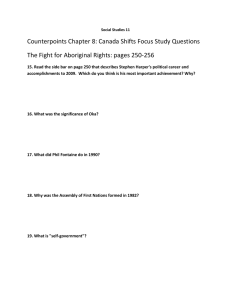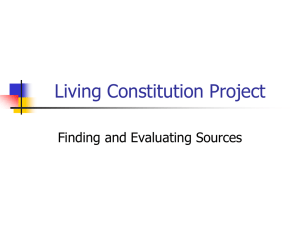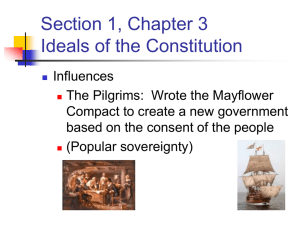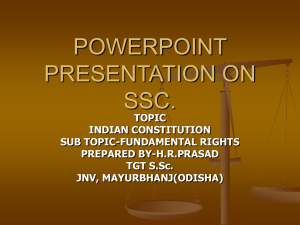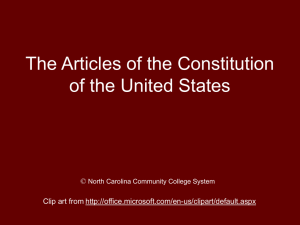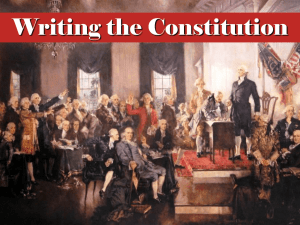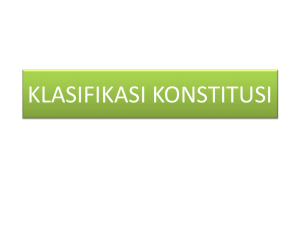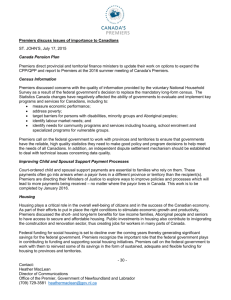law_pp_8
advertisement
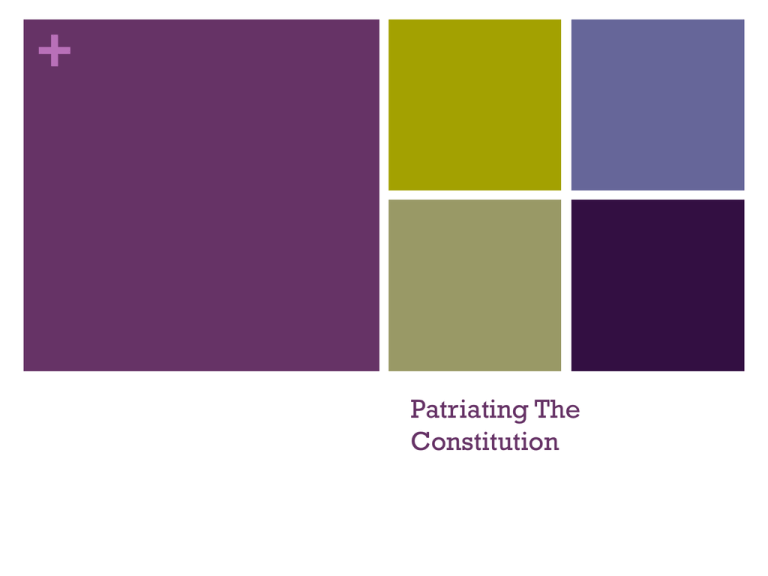
+ Patriating The Constitution + Statute of Westminster A 1931 constitutional change that extended the law-making power of Canada. Canada was now allowed to make its own laws independently Laws could not be overruled by Britain if the law contradicted British laws Canada could now enter into agreements with other countries without Britain’s approval. However, we could not make changes to our Constitution (at this point the BNA Act 1867). + Homecoming… Post WWI, Australia and New Zealand ‘took home’ their Constitutions, which basically means that they now had complete power over all legislative authority. Britain wanted Canada to do the same but there were issues: Federal and provincial governments could not agree on procedures to amend the constitution. Confusion regarding the division of powers Who would have the power to make laws concerning responsibilities that were non-existent No mention of civil liberties (basic individual rights) + Constitution Act, 1982 Pierre Elliot Trudeau made one of his mandates to patriate the Constitution. This was not an easy feat: After numerous failed negotiations with the first ministers (provincial premiers), Trudeau threatened to bring back the constitution without their approvals. Trudeau took his case to the Supreme Court of Canada, who ruled that the federal government can bring home the constitution without the consent of the provinces. Attempted once more to get the ministers together to come to a decision. Over 4 days of debates, 8 premiers came to a decision without Rene Levesque (Quebec) present. The Constitution Act, 1982, was signed and the Constitution was patriated on April 17, 1982. + Constitution Act, 1982 What stayed the same: Division of power Mandate for the federal government to make laws within its jurisdiction 4 Key elements that were added: A principle regarding the equalization of services across Canada An interpretation of who was responsible for control and management of natural resources A formula indicating what terms would be necessary to make future amendments A charter guaranteeing individual rights and freedoms. + Key Elements All Canadians should have essential services but it is harder for smaller provinces to collect enough provincial tax revenue to fund these services. Principle of Equalization: the richer provinces equalized services for all Canadians. Natural Resources: Granted provincial powers over resources (Natural Gas in Alberta and Oil in Newfoundland); however there is a restriction that a province cannot charge higher prices or limit supplies of exports to other parts of Canada. + Key Elements Amending Formula: this is a method of making future changes. Any amendment requires the approval of Parliament plus two-thirds of the provincial legislatures representing 50% of the population (very hard to get changes through hence why the Constitution does not ever change) Charter of Rights and Freedoms: Perhaps the most significant part of the Constitution. Any government who violates these rights and freedoms will be declared invalid and may be struck down. + Conflicts . . . Meech Lake Accord In 1987, Prime Minister Brian Mulroney believed he had all the provincial premiers prepared to sign the Meech Lake Accord. This agreement increase the provincial powers and acknowledged Quebec as a “distinct society” with a right to its unique culture. Elijah Harper, a Cree member of the Manitoba legislature, used delaying tactics that prevented the province from meeting the deadline. Harper disagreed with any agreement that did not deal with First Nations issues. Due to the delay in Manitoba, Premier Clyde Wells did not take a vote in the Newfoundland legislature because he felt NFLD’s vote with be irrelevant without Manitoba’s. The deadline passed and the Accord Collapsed. + Conflicts . . . Meech Lake Accord Issues with the Accord: Failed to include First Nation’s Rights Opposition came from the newly created Reform Party, who received most of their support from out West Many Canadians objected to giving any kind of special status. Trudeau spoke out against the reform: Too much power to the provinces Weakened the federal government There was nothing stopping the other provinces from seeking special status if it was granted to another province + Mulroney Tries Again . . . Hired former prime minister Joe Clark to travel across the country and ask Canadians what they wanted. This committee was mandated to draft an amendment to the constitution that would satisfy all Canadians. Met in Charlottetown to discuss this amendment, called the Charlottetown Accord. It was supported by many First Nation’s political leaders. It was not supported by the Reform Party, the Bloc Quebecois, and the Parti Quebecois. Quebec felt the Accord did not give them enough power, others felt it gave them too much power. On Oct. 25, 1992, 54% of all Canadians voted ‘no’ and the Accord was dead.
